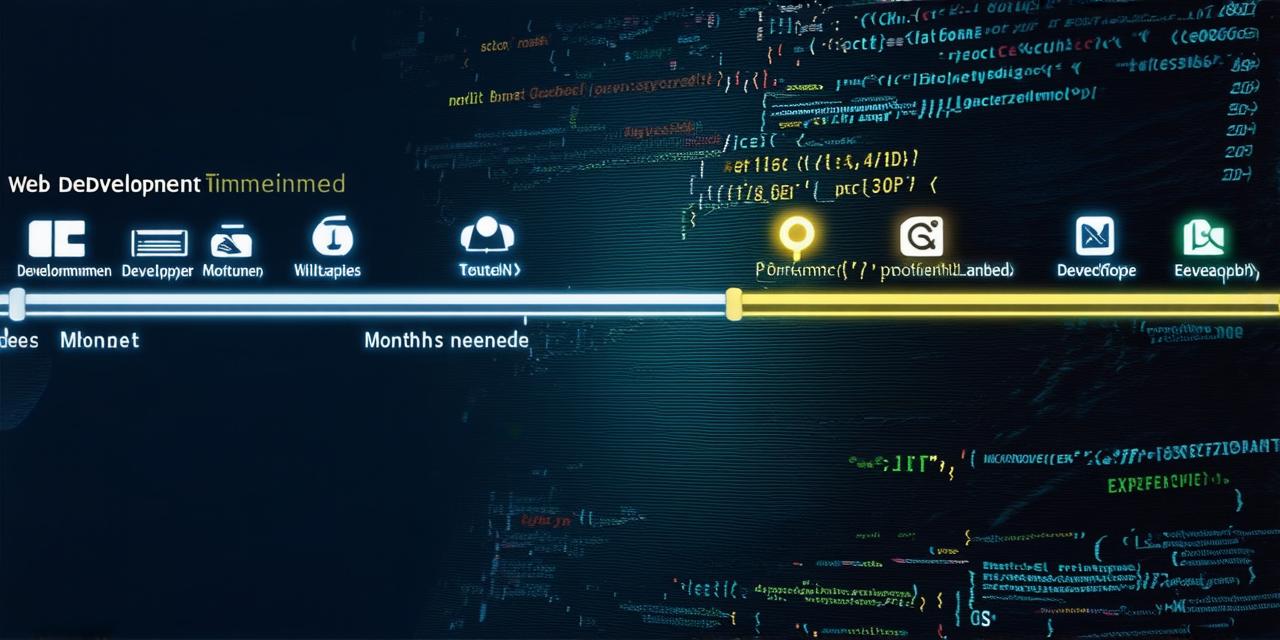Timeline for Learning Web Development: Number of Months Needed
The learning journey in web development is not linear; it’s more of a spiral where concepts are revisited and deepened over time.
The First Steps: Laying the Foundation (1-3 Months)
Start by understanding HTML and CSS, the building blocks of web pages. Familiarize yourself with these languages through online tutorials, coding challenges, or even a beginner’s course. Learn about semantic markup, responsive design, and CSS preprocessors like Sass and Less.
Gaining Depth: Adding Functionality (2-6 Months)
Once you have a grasp of HTML and CSS, dive into JavaScript to add interactivity to your web pages. Learn about ES6 features, React, Angular, or Vue.js for building user interfaces, and Node.js for server-side scripting. Familiarize yourself with APIs, databases (SQL and NoSQL), and version control systems like GitHub.
Specialization: Frontend or Backend? (3-12 Months)
Decide whether you want to specialize in frontend (focusing on user interface) or backend (managing servers and databases). Each path requires different skills, but both are essential for a well-rounded web developer. If you choose frontend, learn about performance optimization, accessibility, and design principles. For backend, focus on server architecture, security, and database management.
Case Study: From Beginner to Pro
Take the journey with Sarah, who started learning web development 6 months ago. She spent her first month mastering HTML and CSS, followed by 2 months learning JavaScript. Now, she’s deciding whether to focus on frontend or backend development. She’s also building a portfolio of projects to showcase her skills.
The Role of Practice
Practice is key in web development. Build projects, contribute to open-source projects, and participate in hackathons to solidify your skills. Join online communities like Stack Overflow or Reddit’s r/learnprogramming for support and guidance.
Expert Opinion

“Patience and persistence are crucial,” says John Doe, a seasoned web developer. “Don’t rush the learning process; take your time to understand each concept thoroughly.” He also emphasizes the importance of continuous learning in this ever-evolving field.
FAQs
1. Q: Can I learn web development faster?
A: Yes, with dedication and focused practice, you can accelerate your learning pace. However, remember that mastery takes time and patience.
2. Q: Do I need a degree to become a web developer?
A: No, many successful web developers are self-taught. Online resources and projects provide ample opportunities for learning.
Conclusion
Web development is a rewarding journey that offers endless opportunities for growth. With dedication, practice, the right resources, and a willingness to learn, you too can become a proficient web developer! Embrace the challenge, and remember: every great coder started somewhere.
